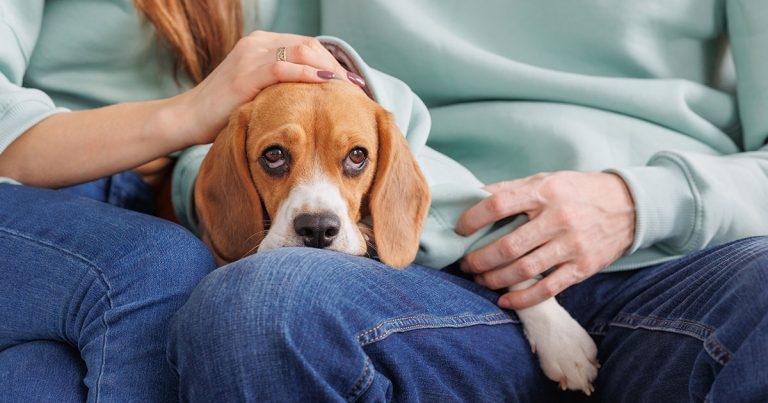6 Jan 2023
Dogs Trust received 50,000 owner requests for them to take on their pets last year – while a new survey found vet bills to be the highest cost concern for owners in 2023.

Image © MyJuly / Adobe Stock
A leading charity has warned the UK is now in an animal welfare crisis after it received 50,000 owner requests for them to take on their pets in 2022 alone.
Dogs Trust officials said the grim milestone is unprecedented and fear the situation will get even worse in the year ahead.
In response, the BVA’s president has urged professionals to make their practices “safe spaces” for pet owners to share their financial concerns, while the sector as a whole has been warned to “expect the unexpected” in 2023.
Six temporary pet food banks have already opened across the Dogs Trust’s network of 21 rehoming centres spanning the UK and Ireland.
More are expected to follow and the charity said it intends to keep them open for as long as they are needed.
Chief executive Owen Sharp said the organisation was now more stretched than at any time in its 131-year history.
Although its own research suggested only 3% of owners would have to consider rehoming if the cost of living kept rising, it fears that could eventually leave as many as 350,000 dogs in need of new homes.
Mr Sharp said: “Although it was inevitable that we would reach 50,000 calls from owners no longer able to care for their dogs, it’s still a shock and a stark signifier of the animal welfare crisis the UK now finds itself in.
“Our utmost priority is to keep as many dogs with their families as we can – and stop people having to make that heartbreaking decision to give up their dog.”
The trust has also released the findings of a new survey, conducted on its behalf by the polling organisation YouGov, in which a third of owners surveyed said they were worried about rising prices affecting their ability to care for their pets in 2023.
Vet bills (46%) were the most commonly cited cost concern ahead of pet food (18%) and pet insurance (16%).
The poll also found that nearly one in seven owners (13%) had not bought a Christmas present for their dog, with 21% saying they had bought fewer gifts for their pet.
Nine per cent also said they would be spending the festive period at home, rather than going away or visiting family, as they could not afford a dog sitter.
Meanwhile, among current non-owners, 62% of respondents said the present economic situation would either definitely or probably stop them from acquiring a dog during 2023.
More than 4,000 people took part in the poll, which was compiled over two days in mid-December.
Mr Sharp said the poll showed many owners were “really worried” about what the new year might bring.
He said: “We’re doing as much as we can to reach out and help dog owners who have been worst hit by the crisis.
“We’re expanding our help and support all the time, so if you’re having a hard time looking after your dog, please reach out to us before it’s too late – there are lots of ways that we can help.”
Dogs Trust’s food banks are currently open at sites in Glasgow, Liverpool and west London, as well as Berkshire, Cumbria and Wiltshire. Full location details are available online.
Although latest figures showed a slight easing in the UK’s rate of inflation to 10.7% in November, the economic challenges faced by pet owners and the veterinary practices they rely on show little sign of easing soon.
BVA president Malcolm Morley, who wrote to the then chancellor Kwasi Kwarteng in October warning him of the threat of practice closures without further support on energy prices, told Vet Times he remains concerned at that prospect.
Although he said his organisation isn’t yet seeing the impact of the crisis, he acknowledged there remains broad concern across the sector as he called for clear and compassionate communication between professionals and their clients.
He said: “Vets are really good pragmatists at thinking about things, but what we need to do is encourage owners, make it a safe space for them to come and say these are our concerns around finance, rather than tell us afterwards that they can’t afford the care.”
Dr Morley continued: “One thing I think everyone in the profession agrees on is that the phrase ‘gold standard care’ is not useful in this context at all.
“On many occasions, there are different ways of treating an animal, so it’s frank conversations with owners.”
Meanwhile, the VMG’s president, Rich Casey, said the work of his organisation had “never been more important” because of the challenges posed by the cost of living crisis.
Mr Casey added: “The VMG will continue to be the voice of veterinary leadership in the UK during another year in which, given the experience of recent years, we should all be prepared to expect the unexpected.”